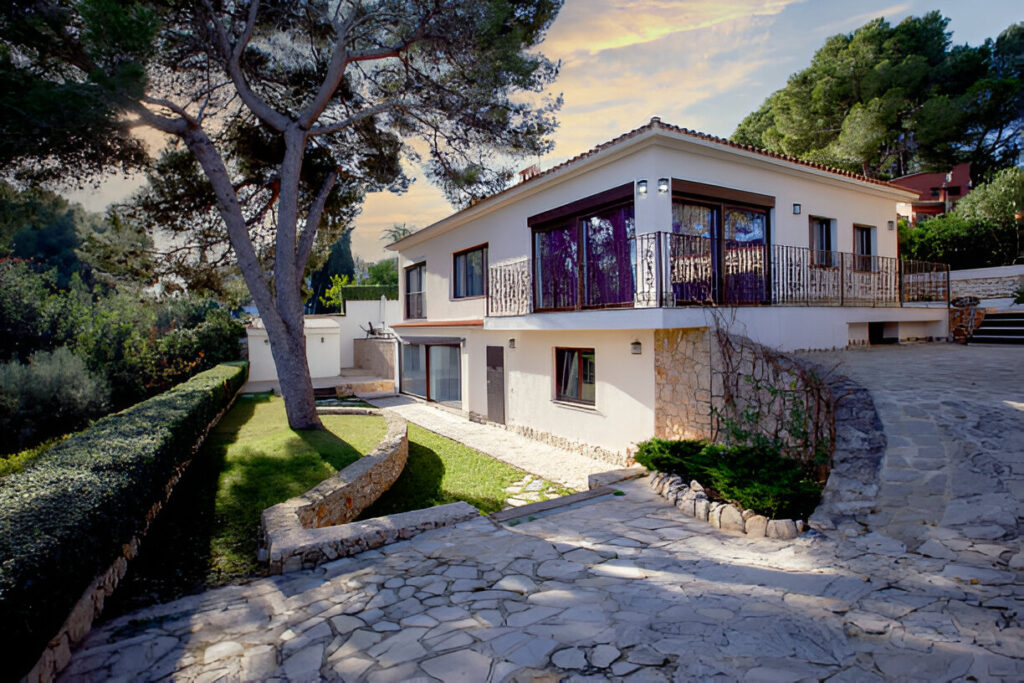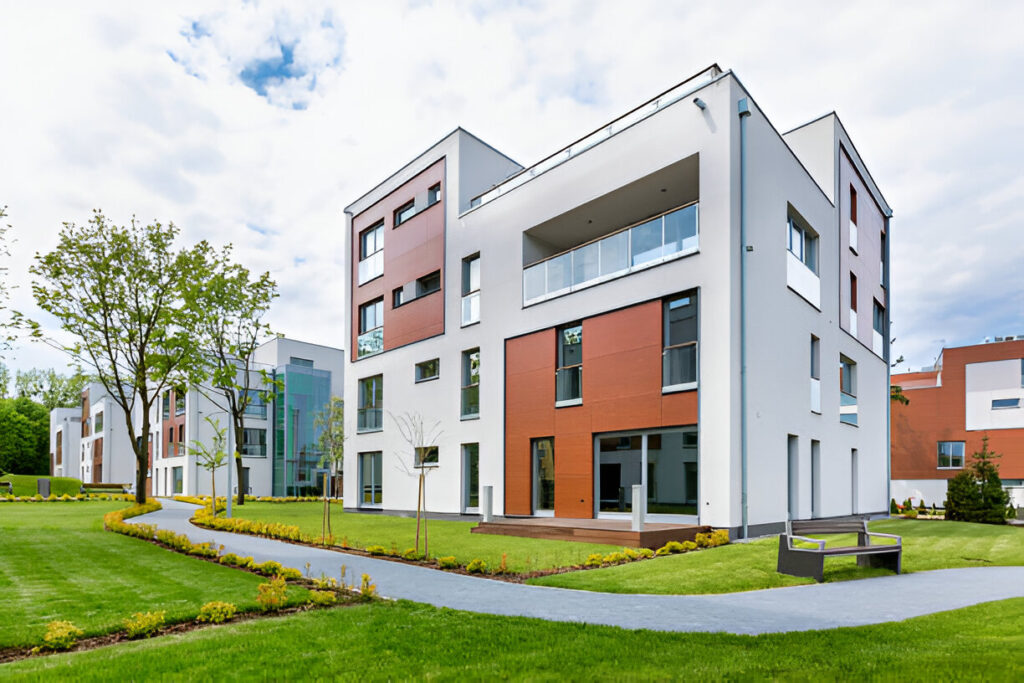If you’re considering Buy a Property in Spain, you’re not alone! Spain’s sunny weather, beautiful landscapes, and rich culture have made it a top destination for property buyers worldwide. But before you dive in, it’s important to understand the ins and outs of this exciting investment.


Would you like to buy a property in Spain?
If you’ve ever dreamed of owning a place in Spain, you’re not alone. The country’s warm climate, beautiful landscapes, and rich culture make it an appealing destination. But buying property abroad can feel like a big step. Let’s break it down into manageable pieces so you know exactly what to expect and how to get started.Why Spain is a Great Place to Buy Property
Spain has long been a favorite for people looking to buy property overseas, and it’s easy to see why. The weather is a major draw, especially in the coastal areas where the sun seems to shine almost daily. The relaxed lifestyle is another big plus. Whether you’re looking for a vacation home, a retirement spot, or even a full-time residence, Spain offers a slower pace of life that many find refreshing. The cost of living can be quite affordable compared to other European countries. Plus, the Spanish healthcare system is top-notch, which is important if you plan to spend a lot of time there.Property Market: What to Expect
The Spanish property market is diverse, with something for everyone. From city apartments to countryside villas, the options are endless. Prices can vary greatly depending on the location. Coastal areas, especially those popular with tourists, are more expensive. On the other hand, if you’re willing to explore inland areas, you might find more affordable options. The market has seen its ups and downs but is currently stable, making it a good time to invest. It’s also worth noting that Spain is a buyer-friendly country, meaning the process of purchasing property is straightforward compared to others.Steps to Buying Property in Spain
So, how do you go about Buy a Property in Spain? First, deciding on the location that suits your needs is essential. Do you prefer the hustle and bustle of a city like Barcelona or Madrid, or are you drawn to the tranquility of rural Andalusia? Once you’ve chosen your location, the next step is to set a budget. Remember to factor in additional costs like taxes, legal fees, and maintenance. After deciding on your budget, start looking at properties. You can do this online, but visiting Spain and seeing the places in person is also a good idea. You’ll need to make an offer when you find something you like. The next step is to hire a lawyer to help with the paperwork if accepted. This is crucial because they’ll ensure everything is in order and protect your interests.Legal Considerations and Paperwork
The legal side of buying property in Spain involves some paperwork, but it’s not as complicated as it might seem. One of the first things you’ll need is a NIE number, a tax identification number for foreigners. Your lawyer will help you with this and check the property’s legal status. They’ll ensure no debts or legal issues are tied to the property. You’ll also need to sign a contract and pay a deposit, usually around 10% of the purchase price. The final step is to sign the title deed at a notary’s office, after which the property is officially yours.Making the Move
Once you’ve bought your property, it’s time to think about moving in. There’s much to consider whether you plan to live there full-time or use it as a holiday home. You’ll need to set up utilities, arrange for any renovations, and get familiar with your new neighborhood. If you’re moving from another country, there’s also the matter of visas and residency permits, which are usually straightforward for property owners. Buying property in Spain is a big decision, but it can bring great joy and satisfaction. With the right preparation and patience, you can make your dream of owning a home in Spain a reality. It’s all about taking it one step at a time and knowing that, in the end, you’ll have your very own piece of paradise to enjoy.How Much Is a House in Spain?
Thinking about buying a house in Spain? It’s an exciting journey that comes with plenty of considerations. Let’s break down the cost of a house in Spain.
Big Picture – Average Prices Across Spain
The price of a house in Spain can vary quite a bit depending on where you’re looking. On average, you might be looking at anywhere between €1,500 to €2,500 per square meter. So, considering a 100-square-meter apartment, the cost could range from €150,000 to €250,000. But it’s not straightforward since different regions have different price tags.City Living vs. Countryside Charm
If you aim for a city like Madrid or Barcelona, be prepared for higher prices. In these bustling cities, the average cost per square meter can easily climb to €4,000 or more, which means a 100-square-meter apartment could set you back €400,000 or more. On the other hand, if you’re drawn to the tranquility of the countryside or smaller towns, you’ll find that prices drop significantly. The cost might be as low as €1,000 per square meter in these areas, making that same 100-square-meter home around €100,000.Coastal Appeal
Spain’s coastline is another popular choice, especially among expats and retirees. Regions like Costa del Sol, Costa Blanca, and the Balearic Islands offer beautiful weather and scenic views, but these perks are priced. Coastal properties are typically more expensive, ranging from €2,500 to €5,000 per square meter, depending on how close you are to the sea and the area’s popularity. For instance, a 100-square-meter home in Marbella or Ibiza could cost anywhere from €250,000 to €500,000 or more.New Build vs. Resale Homes
When buying a house in Spain, you must decide between a new build or a resale home. New builds are often more expensive, but they come with modern amenities, better energy efficiency, and, sometimes, a higher resale value. On the flip side, resale homes might be more affordable but could require renovations, which adds to the overall cost. New builds can range from €2,000 to €3,500 per square meter, whereas resale homes might be slightly cheaper, depending on their condition and location.Hidden Costs to Consider
Finally, don’t forget the additional costs of buying a home in Spain. These can include property taxes, legal fees, notary fees, and sometimes even a real estate agent’s commission. Budgeting an extra 10% to 15% of the property’s purchase price is wise to cover these expenses. So, if your dream home is priced at €200,000, be prepared to spend an additional €20,000 to €30,000 on these extras. Buying a house in Spain is an exciting opportunity to own a piece of this beautiful country. Whether you’re drawn to the vibrant city life, the peaceful countryside, or the stunning coastline, there’s something for everyone. Just ensure you’ve got a clear picture of the costs involved to find the perfect home within your budget.Is Property Cheap in Spain?
When people think of moving to Spain, one of the big questions that come up is about the cost of property. Is buying a home in Spain cheap? The answer could be more straightforward because it depends on location, property type, and market trends. Let’s break it down.Location Matters
The price of property in Spain varies significantly depending on where you look. Major cities like Madrid and Barcelona tend to be more expensive, especially in central areas. However, if you’re looking in smaller towns or rural areas, you can find much less expensive properties. Coastal regions, particularly popular with tourists, can also be pricey, but there are still deals to be found in less tourist-heavy spots.City vs. Countryside
Buying a home in the Spanish countryside is often much cheaper than in urban centers. For example, a country house in Andalusia or Extremadura might cost a fraction of what you’d pay for an apartment in Madrid. If you’re willing to live away from the hustle and bustle of city life, you could find a spacious home with land for a surprisingly low price. But remember, living in the countryside might mean fewer amenities and a slower pace.Type of Property
The kind of property you’re interested in also affects the price. A modern apartment in a new development will likely cost more than an older home that might need renovations. However, buying an older property could save you money if you’re handy or willing to take on a project. On the other hand, luxury villas and high-end apartments in sought-after locations can be very expensive, comparable to prices in other European countries.The Current Market
Spain’s property market has seen its ups and downs. Property prices dropped significantly after the 2008 financial crisis, making it a buyer’s market. Over the past few years, prices have risen again, especially in popular areas, but affordable options are still available. It’s worth noting that property in Spain can still be cheaper than in many other European countries, particularly in comparison to places like the UK or France.Bargain Hunting
If you’re keen on finding a bargain, keep an eye on properties that have been on the market for a while. Sellers might be more willing to negotiate on price. Additionally, buying property at auction or from a bank can offer significant savings. However, these options might come with more paperwork or legal hurdles, so getting advice from a local expert is wise. So, is property cheap in Spain? The answer is yes and no. It can be cheap, especially if you’re flexible about where and what property you want. Spain offers many options, from affordable countryside homes to expensive city apartments. It depends on your preferences, needs, and willingness to hunt for a good deal. With some research and patience, you can find a property that fits your budget and gives you a slice of Spanish life.What Are the Legal Requirements for Buying Property in Spain?
If you’re considering buying property in Spain, you must know the legal requirements. Whether you’re eyeing a sunny vacation home, an investment property, or a new place to call home, understanding the legal landscape is key. Marfour International Law Firm can guide you through each step of the process, making sure you stay on the right track.Obtaining Your NIE for Property Transactions
The Número de Identificación de Extranjero (NIE) is one of the first things you’ll need when buying property in Spain. This identification number is crucial for any financial dealings, including purchasing real estate. Without an NIE, you won’t be able to proceed with the transaction. Marfour can assist you in obtaining this number through a Spanish consulate abroad or directly in Spain.Finding the Perfect Property with Expert Guidance
Before purchasing, you must find a property that suits your needs. The Spanish real estate market can be quite different from what you’re used to, so working with a knowledgeable real estate agent is beneficial. Marfour International Law Firm can help ensure that the property you’re interested in is legally sound and free of any issues that might complicate your purchase.Making an Offer and Signing the Preliminary Contract
Once you’ve identified your ideal property, the next step is to make an offer and sign a preliminary contract called a “Contrato de Arras.” This contract outlines the sale terms and usually involves a deposit, typically around 10% of the purchase price. This agreement legally commits both you and the seller to the transaction. Marfour can review and help you understand this contract to avoid any surprises.The Role of a Lawyer in the Property Buying Process
While hiring a lawyer is not legally required, it is highly advisable. A lawyer can review contracts, check the property’s legal status, and help you through the legalities of the purchase. Marfour International Law Firm provides expert legal services to ensure that every aspect of your property purchase is handled correctly and efficiently.Securing a Mortgage for Your Property Purchase
You’ll need to arrange a mortgage if you’re not paying for the property outright. Spanish banks offer mortgages to foreigners, but the terms might differ from what you’re accustomed to. Typically, banks will finance up to 70% of the property’s value, so you’ll need to cover the remaining amount plus additional costs. Marfour can assist you in navigating this process to secure the best possible terms.Finalizing the Purchase and Registering Your Property
When everything is in order, the final step is to sign the “Escritura de Compraventa” before a notary. This document finalizes the sale and transfers ownership to you. After signing, the purchase must be registered with the local land registry to complete the process. Marfour can guide you through this final stage to ensure everything is completed correctly.Get to know the Costs Involved in Buying Property.
In addition to the property price, there are various taxes and fees to consider. These include the Property Transfer Tax or VAT (for new properties), notary fees, and land registry fees. These costs can add up to 10-15% of the purchase price. Marfour can help you understand and budget for these additional expenses, ensuring no surprises.Ensuring a Smooth Property Purchase
Buying property in Spain involves several legal steps and requirements. Each step is crucial for a successful transaction, from obtaining your NIE to finalizing the purchase and handling taxes. Marfour International Law Firm is here to provide the legal expertise to make the process as smooth and hassle-free as possible.Where Are the Best Places to Buy Property in Spain?
Spain is renowned for its diverse landscapes and vibrant culture, making it a popular choice for property buyers. Spain has something to offer if you’re looking for a sunny retreat, a bustling city, or a peaceful countryside. But where are the best places to buy property? Let’s explore some top locations that stand out for various reasons, whether you’re seeking an investment opportunity, a second home, or a permanent residence.

